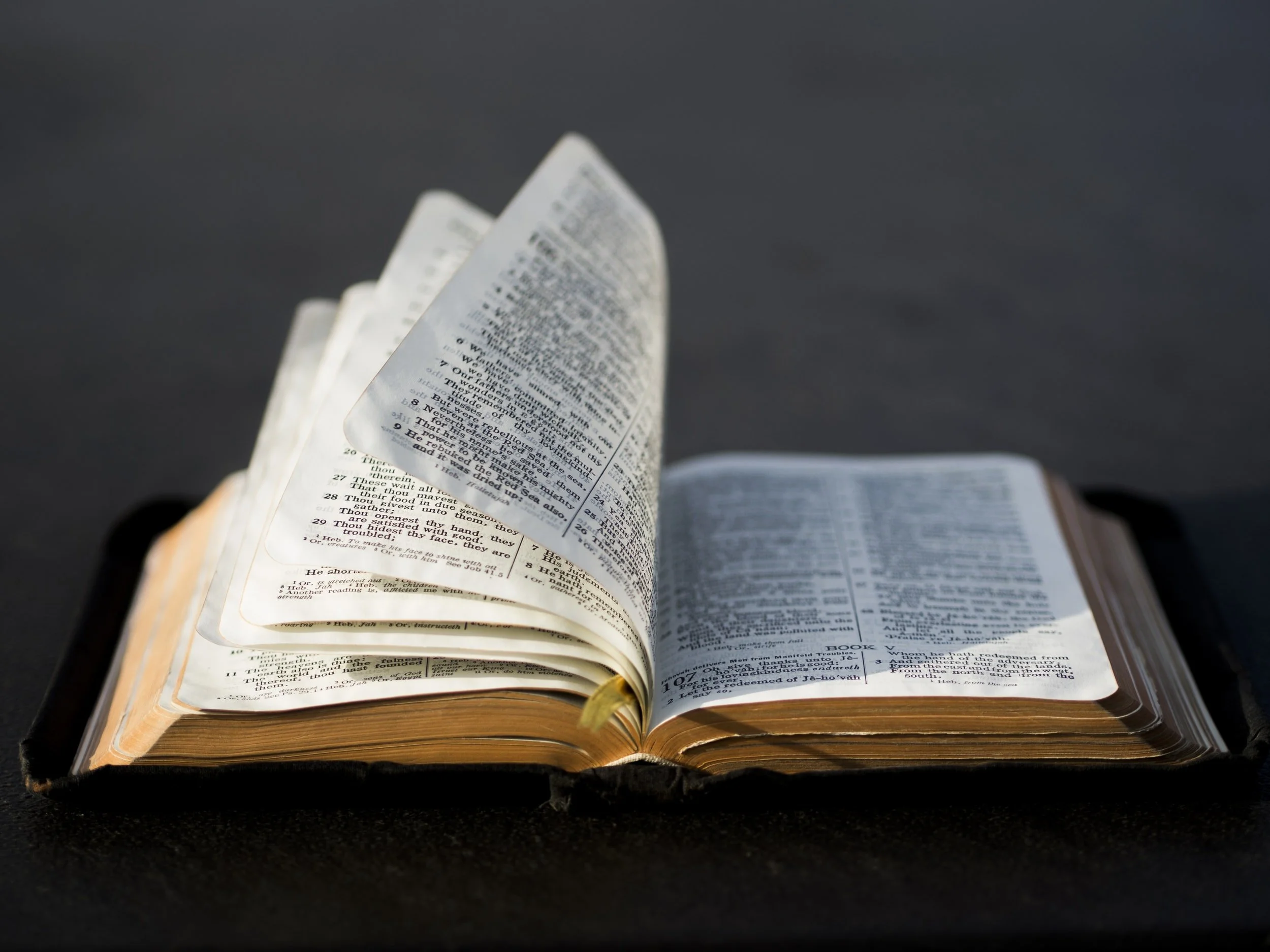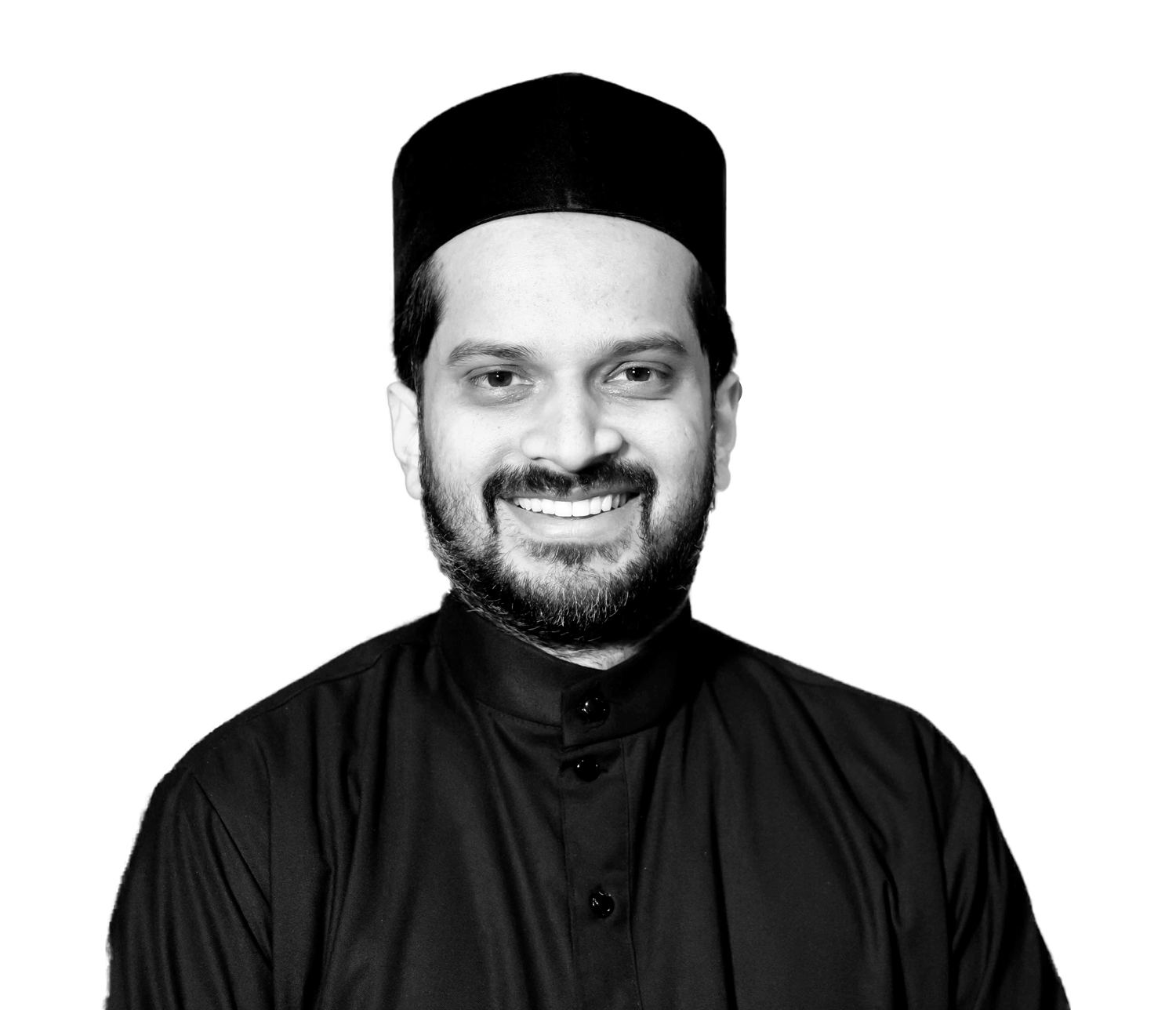One in Christ
What the Bible has to say about race, racism and inclusion
By Fr. Anish John
(From the October - December 2021 issue of VOX)
As a theologian and leader in the Indian Orthodox Church in Ireland, Fr. Anish John explores the Biblical basis for discussions about racism and anti-racism with an overview of the whole of scripture from Genesis to Revelation.
Diversity is a reality and the world we live in is inhabited by human beings divided by race, colour, creed, religion, geography and living conditions. For human beings, anyone who does not look like us, speak like us or dress like us tends to be understood as a stranger or a threat. Identifying unity in diversity is the norm of the world we live in.
The Bible is a resource in discourses against racism, enslavement, colonialism and migrant concerns. Texts from the Bible have been taken up in the service of anti-racist, anti-slavery, and post colonialist discussions.
The Bible draws a clear picture of humanity as an icon [image or reflection] of God, whereby humanity shares in the goodness and divine. God stands by the neglected and oppressed, guiding and empowering them. The biblical narratives highlight not just the powerful kings, and rulers but the poor, the downtrodden and weaker in society. Jesus lived and dined amongst the weak and poor. We have narratives that speak to us of human dignity, embracing diversity and social justice.
In the Israelite history as narrated in the Bible, God not only remembers the people who escaped from Egypt but consistently addresses the sojourner and foreigner who will live among them. In passages like Leviticus 19:33-34, the Israelites are told to treat people from different cultures and backgrounds equally and as “native-born.”
In similar passages, they are asked to extend kindness (Exodus 22:21), generosity (Leviticus 23:22) and love (Deuteronomy 10:19) to those who are foreigners, as ‘‘you yourselves were foreigners in Egypt’’ (Exodus 22:21, Deuteronomy 10:19). They are asked to extend love and justice because they experienced it from God while in Egypt (Deuteronomy 24:17-19 and 27:19). The concern for foreigners, orphans and widows while even gathering the harvest is remarkable (Deuteronomy 24:19).
Furthermore, as they are about to go into the promised land, God instructs them to assemble everyone devoid of any discrimination of gender, age or creed and publicly read the Mosaic Law (Deuteronomy 31: 9-13). In the Old Testament God constantly promises to draw strangers to Himself (Isaiah 56) and exhorts people to ‘‘maintain justice and do what is right’’.
Let us have an overview of discourses in the Bible where God speaks for the voiceless.
Humanity as God’s Icon
The book of Genesis as the first book of Bible presents to us the creation story, which forms the basis of Christian anthropology. Human beings, created in ‘‘God’s own image and likeness’’, (Genesis 1:26) remain the touchstone for any discussion on theological anthropology. Every human being understood as made in the image of God provides fresh insights to human dignity and helps embrace diversity. The image of God guides us to a unity within the diversity. Also, every human life has a divine impetus within itself, an orientation towards the divine.
The Bible depicts human beings as infused with a divine spirit (God breathes the breath of life into the creation, Genesis 2:7).
Hospitality for strangers
The people of Israel presented as the chosen people of God are continuously commanded to care for strangers and to provide hospitality to other nations. Yahweh calls them to treat all people not only with fairness but also with protection and care. God calls all people to seek justice for those who are vulnerable and suffer injustice.
Interestingly, today immigrants represent a rapidly growing population of the Christian church in various parts of the world. Even more immigrants engage in healthcare, hospitality and information technology sectors offering services to others with Christian love, compassion and social engagement. The example of Abraham and Sarah shows that this work can be profoundly important as a service to God and humanity. When the three men (who turn out to be divine) journey by Abraham’s tent, he runs out and invites them to stop. When they accept, he prepares a lavish feast for them (Genesis 18).
Instrument of blessings to others
“God chose Abraham and his descendants to bless the nations.”
God seeks a greater responsibility from those chosen. To be chosen or be called God’s people isn’t just a privilege, it is a responsibility. As Dietrich Bonhoeffer puts it in the “Cost of Discipleship”.
Genesis 12:1-7 describes God’s election or choosing of Abraham (and his descendants). It is easy to misinterpret God’s choosing of Abraham as an example of partiality, as if God favours one people group over others. However, His election is missional. God chose Abraham and his descendants to bless the nations.
In the New Testament, the apostle Paul notes that Christ was the fulfilment of God’s promise to Abraham (Galatians 3:16) and not to descendants in an exclusive sense. The promises in Genesis 12 were spoken to Abraham and to his seed. Interestingly, Paul’s interpretation is that the scripture does not say “and to seeds,” meaning many people, but “and to your seed,” meaning one person, who is Christ.
Love and Justice
God commands His people to ‘‘love those who are foreigners’’ and reminds that “you yourselves were foreigners in Egypt” (Deuteronomy 10:19). The foreigner residing among you must be treated as your native-born. Love them as yourself, for you were foreigners in Egypt. I am the Lord your God. (Leviticus 19:34).
God asks to divide inheritance equally among strangers and Israelites. And to consider a foreigner as native-born Israelites. God says, ‘’along with you they are to be allotted an inheritance among the tribes of Israel. In whatever tribe a foreigner resides, there you are to give them their inheritance.’’ (Ezekiel 47: 22-23).
God of all nations
The prophets of the Old Testament severely criticised injustice and vehemently insisted that true worship of God cannot exist without loving justice. The prophet Amos threatens judgment on “those who oppress the innocent and take bribes and deprive the poor of justice in the courts” (Amos 5:12). Zechariah the prophet exhorts God’s people to “administer true justice; show mercy and compassion to one another. Do not oppress the widow or the fatherless, the foreigner or the poor” (Zechariah 7:9 – 10). And Micah rhetorically asks, “What does the Lord require of you? To act justly and to love mercy and to walk humbly with your God” (Micah 6:8).
The Old Testament prophets also foretold the coming of a Davidic king that would fulfil God’s promises not only to Israel but to the nations as well. We see this in Isaiah 42:1–7, where God said this through the prophet:
“Here is my servant, whom I uphold, my chosen one in whom I delight; I will put my Spirit on him, and he will bring justice to the nations. … I, the Lord, have called you in righteousness; I will take hold of your hand. I will keep you and will make you to be a covenant for the people and a light for the Gentiles”. The gospel of St. Matthew quotes this prophecy and states that Jesus Christ fulfilled it (Matthew 12:15–21).
One in Christ Jesus
St. Paul makes it clear that neither socioeconomic nor biological status can be used to discriminate; “there is neither Jew nor Gentile, neither slave nor free, nor is there male and female, for you are all one in Christ Jesus” (Galatians 3:28).
Worshipping the Lamb
Eschatologically, the Book of Revelation presents a multitude worshipping before the throne of God:
“…a great multitude that no one could count, from every nation, tribe, people and language, standing before the throne and before the Lamb. They were wearing white robes and were holding palm branches in their hands. And they cried out in a loud voice: “Salvation belongs to our God, who sits on the throne, and to the Lamb.” (Revelation 7:9–10)
The Call to Act Justly
As representatives of God, judges are called to acquit the innocent, condemn the guilty, and expose false accusations and bribery (2 Chronicles 19:5 – 7). They are asked not to distort justice by favouring either the poor or the rich (Exodus 23:3; Leviticus 19:15). The psalmist prays, “Endow the king with your justice, O God . . . May he judge your people in righteousness, your afflicted ones with justice” (Psalms 72:1 – 2).
Throughout the Old Testament, God’s people are exhorted to “learn to do right and seek justice” (Isaiah 1:17).
God became human
“Quite often, instead of recognising God’s image in one another, people have discriminated and ill-treated each other.”
God becoming humankind in the New Testament is the inauguration of our salvation history and exemplifies the possibility of humanity being united with the divine. God takes on our infirmities and unites every race, culture, language and land.
Jesus echoes the Old Testament prophets when He calls out the Pharisees for concentrating on religious observance while neglecting “justice and the love of God” (Luke 11:42). Justice for the needy holds a central place throughout His teaching and ministry.
Throughout human history, people have used race and ethnicity to differentiate themselves from others. Quite often, instead of recognising God’s image in one another, people have discriminated and ill-treated each other. Sadly, even some Christian churches have succumbed to the temptation of racial and ethnic superiority over others.
We have recently heard, “black lives matter” echoing around us, while others have made it clear that, “all lives matter’’. And thus, the need to understand and embrace diversity becomes important.
Racism manifests itself in many ways and through several structures. It could be based on ethnicity, race or religion and has excruciating effects in the form of discrimination and exclusion of individuals or groups.
Racism could also be part of cultural, religious, or social orientation. And thus, structures of society such as religion could play a decisive role in eradicating and spreading awareness against this social evil.
Karl Rahner famously wrote, “The only way in which human beings achieve self-realization is through encounters with their fellow human beings, persons who are rendered present to their experience in knowledge and love in the course of their personal lives, persons, therefore, who are not things or matter, but human beings.”
Fr. Anish John is a Ph.D. student at St. Patrick’s College, Maynooth, Ireland. An ordained clergy of the Malankara (Indian) Orthodox Syrian Church serving the St. Thomas Indian Orthodox Church, Dublin.


